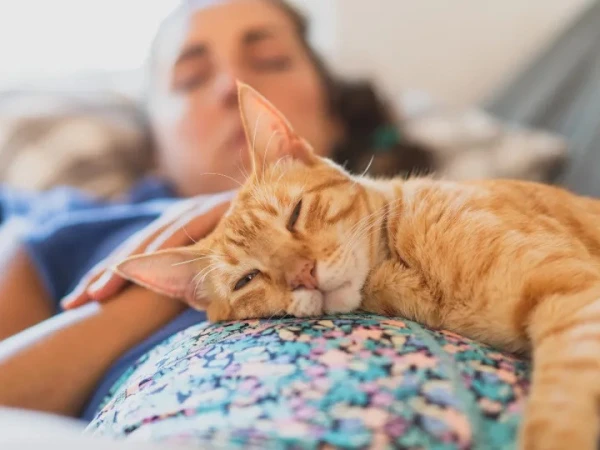For many people, sleeping with a pet in the same bed is a source of love and comfort. However, numerous scientific studies highlight the serious medical risks hidden behind this common habit.
According to health experts, the disadvantages of sharing a bed with an animal go far beyond simple sleep disruption.
The most significant risks are related to allergies and respiratory issues. Pet hair, dander, and various microorganisms on their skin can become airborne, triggering allergic reactions. For individuals who already suffer from asthma or breathing difficulties, this situation can worsen their condition.
Another major problem is the impact on sleep quality. Animals often move, bark, or become restless during the night. This can repeatedly interrupt a person’s deep sleep cycle, severely affecting the quality of their rest.
Furthermore, bacteria and germs present on an animal’s body can lead to serious illnesses. Zoonotic diseases—those that transfer from animals to humans—are a genuine threat. These include fungal infections like Ringworm and diseases such as Toxoplasmosis, the latter of which can be particularly dangerous for pregnant women.
Experts also agree that pets can carry internal or external parasites, like fleas and ticks, which are harmful to human health.



